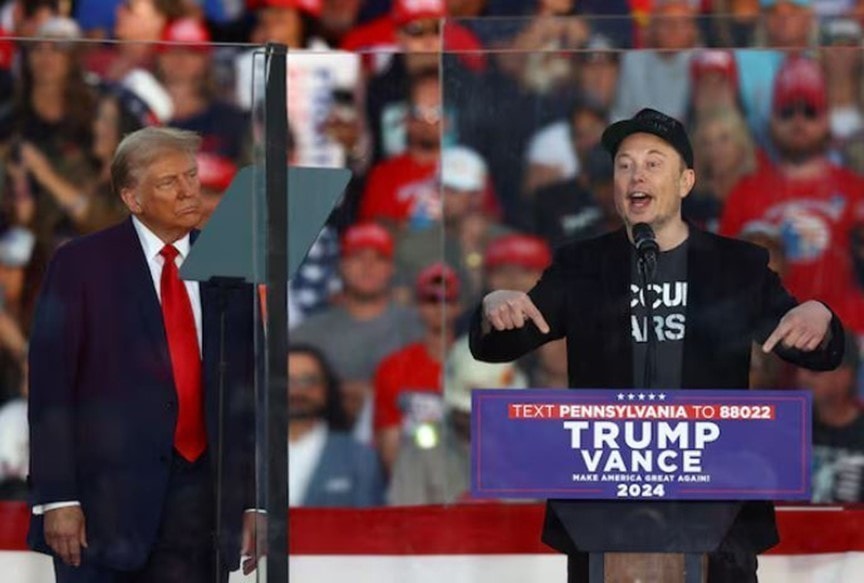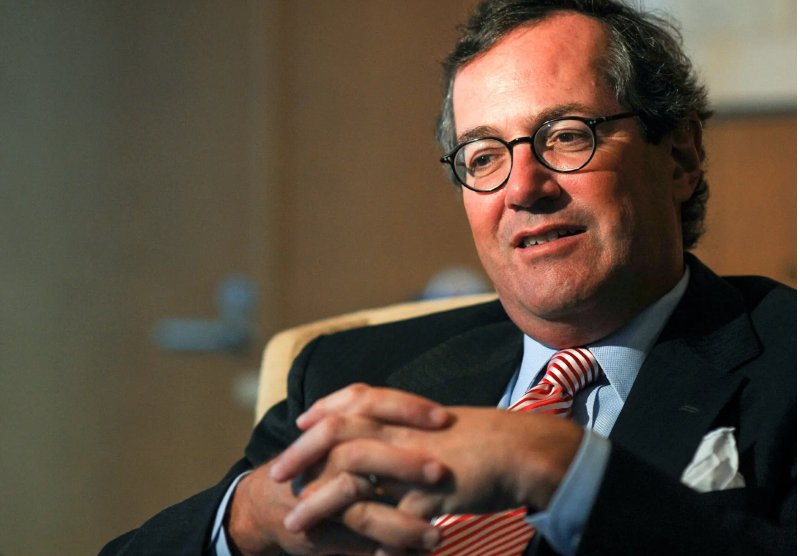Among the records President-elect Donald Trump is breaking as he forms his new administration, there is one that likely won't be challenged in the near future: he has the most billionaires in his cabinet.

The president-elect’s nominees for his incoming administration include at least 10 ultra-wealthy people. The question is how these appointments fit into his campaign pledge to “rescue” the working class.
Billionaire Cabinet
Of course, there's Elon Musk, his new best friend and the richest man on the planet, who last week became the first person to surpass $400 billion in wealth.
Not to that extent, but among those nominated or appointed by the president-elect are at least 10 super-rich people like him (and a few others who are wealthy).
In addition to having a lot of money, they have something else in common: unswerving loyalty to the leader, whose first term gathered a number of powerful subordinates, albeit significantly fewer than today.
The “billionaire club” in Trump Cabinet 2.0 also includes Vivek Ramaswamy, his colleague at the Department of Government Efficiency (DOGE), a newly formed advisory group that is not exactly part of the executive branch and is tasked with cutting government spending.
Ramaswamy’s biotech businesses have made him worth about $1 billion (according to public records). He ran in the Republican primary but lost in the early rounds and became a staunch Trump supporter.
North Dakota Governor Doug Burgum, whose net worth exceeds $1.1 billion, also ran in the primary and dropped out early. If the Senate confirms his nomination, Burgum will take over the Interior Department, becoming one of four billionaire secretaries.
Others include Linda McMahon (nominee for Secretary of Education), who made a fortune (about $2.6 billion) thanks to American professional wrestling, banker Howard Lutnick (nominee for Secretary of Commerce; about $2 billion); and Scott Bessent (nominee for Secretary of the Treasury), whose exact fortune remains unknown although no one doubts it exceeds the $1 billion threshold.
There is also a deputy secretary, Stephen Feinberg (Defense Department), with a fortune of $5 billion, and Chris Wright (nominee for Secretary of Energy), who is not in the billionaire club but still holds an estimated fortune of $171 million.
When Mr Trump warned during his campaign that he would shake up almost everything on the foreign policy front, few knew he might be referring to establishing something like “rich kid diplomacy” with people like banker Warren Stephens (net worth $3.3 billion) appointed as ambassador to the UK, or investor Steven Witkoff (special envoy to the Middle East, net worth over $500 million).
The president-elect has also made no secret of his intention to break with the norm by appointing wealthy relatives to roles in his administration: Massad Boulos, the father-in-law of his youngest daughter Tiffany, is an adviser on Middle East affairs, and the father of Jared Kushner's son-in-law, Charles, is ambassador to Paris (who is worth $2.9 billion).

The list of wealthy people in Mr. Trump’s entourage (whose personal fortune was estimated this week at $5.4 billion) is completed by amateur astronaut Jared Isaacman (who has close ties to Elon Musk), who will head NASA and is worth an estimated $1.9 billion; CEO of the financial firm Fiserv, Frank Bisignano (chosen as Social Security commissioner, with more than $900 million); physician and television host Mehmet Oz (in charge of public health services; at least $100 million); businesswoman Kelly Loeffler (nominated to head the Small Business Administration; with $1.1 billion); and tech investor David Sacks (AI and cryptocurrency mogul; $200 million).
The list of millionaires could go on and on, depending on where one draws the line to join this exclusive club. Vice President-elect JD Vance, for example, has a net worth estimated by CBS to be between $4.8 million and $11.3 million.
Impact on the working class
The question now is how these appointments fit into the campaign promise of rescuing the working class that Mr Trump made.
Among the loyalists who attend his rallies, there is a widespread belief that the wealth of the presidential candidate and those he intends to surround himself with is a guarantee that they will assume office cleanly.
“These people don’t need politics to get rich; we can be sure there will be no corruption,” one voter explained outside a JD Vance rally in Arizona just before the election.
Another widely circulated idea was summed up by a young supporter from North Carolina, DeAndre Jones: “If these people ran the country as successfully as their company, we would be saved.”
“As a famously wealthy person, Mr. Trump likes to surround himself with people like himself,” said historian Michael Kazin, a professor at Georgetown University and a labor expert.
“Most working people voted for him because they were attracted to a personality they saw as someone who spoke his mind, not to mention his promise to curb illegal immigration and inflation. Most Americans have never hated the rich for being rich, but they do dislike people they suspect are exploiting or cheating them as workers and consumers. And Mr. Trump has worked hard to avoid being seen that way.”
The Irony and Theory of Chuck Collins
But those voters may soon realize the irony of the president appointing this group of billionaires with the task, in some cases, of cutting public services that benefit the most vulnerable, Professor Kazin said.
Author Chuck Collins has a different theory. An heir to the Oscar Mayer meat-processing empire who gave up his inheritance to become an academic expert on inequality, Collins is the author of “The Wealth Hoarders: How Billionaires Spend Millions to Hide Trillions,” a book that exposes the tricks American billionaires use to avoid taxes, isolate political power, and disguise philanthropy as another way to maintain their power.
In an email, Chuck Collins said he believes Elon Musk has reached the point where “a business leader diverts attention from his business to protect his money, block competition, and engage in political influence, through campaign contributions [he donated more than $260 million to Trump’s campaign], securing media ownership [owning social network X], and supporting political research groups.”
Collins explains that typically that stage comes with “the second or third generation of wealthy families.”